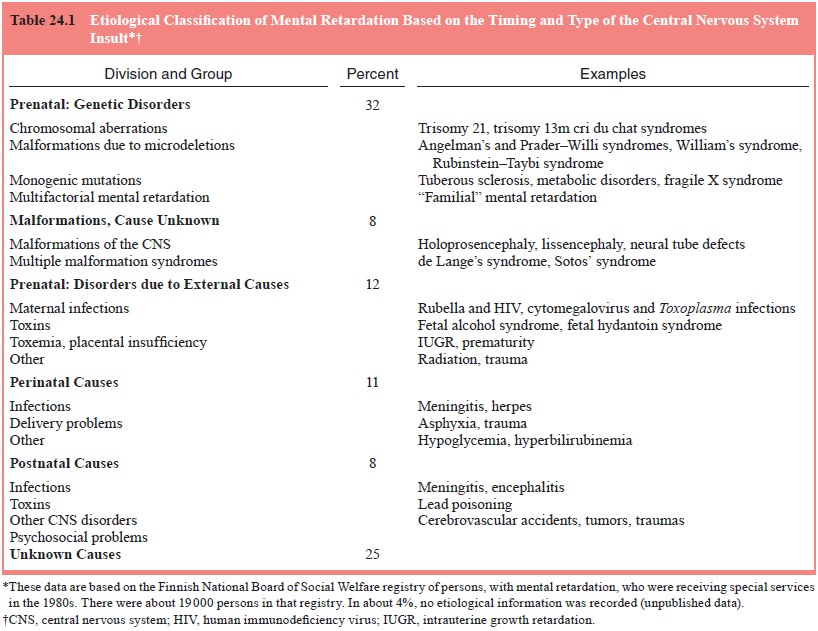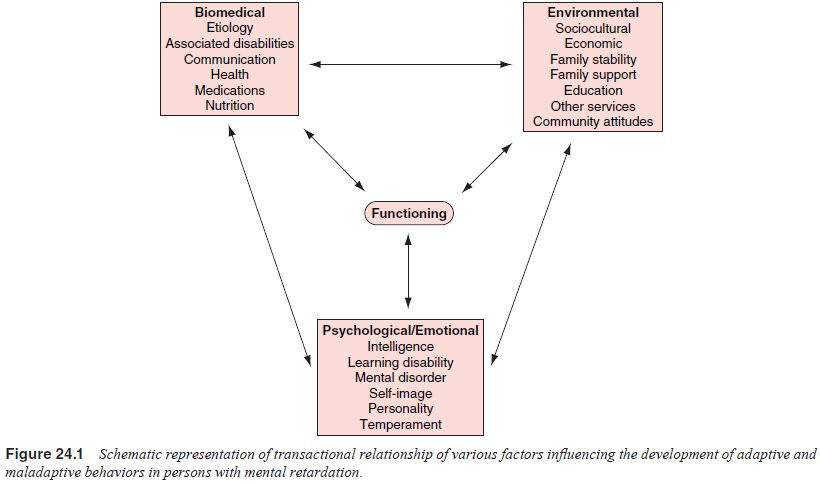Chapter: Essentials of Psychiatry: Childhood Disorders: Mental Retardation
Approaches to Classification of the Causation of Mental Retardation
Approaches to Classification of
the Causation of Mental Retardation
The prevalence of diagnosable (using current
techniques) bio-medical causes of mental retardation varies with the degree of
the disability. When the retardation is severe, a prenatal cause can be
identified in 59 to 73% of patients, but in mild mental retardation such a
cause can be identified in only 23 to 43% of patients.
Table 24.1 illustrates the most commonly employed
clas-sification system of the etiology of mental retardation. It reflects

both the timing and the type of the causative
process which will affect the development and function of the CNS (Wilska and
Kaski, 1999). The goal of the etiological assessment is to eluci-date the
earliest developmental cause as well as other coexisting causative factors
because their effects are usually interactive and cumulative (McLaren and
Bryson, 1987)
Phenomenology and Variations in Presentation
The clinical presentation of persons with mental
retardation is in-fluenced by multiple factors, which can be grossly divided
into biological (such as syndromes underlying the retardation), psycho-logical
(the level of the person’s intellectual and adaptive function-ing), and
environmental (such as cultural expectations and services received). Their
mutual relationship is illustrated in Figure 24.1.

The more severe the mental retardation, the earlier
the child will come to medical attention because the developmen-tal delay will
be obvious earlier, and associated physical impair-ments will be more
prevalent. Conversely, children with mild mental retardation may not be
diagnosed until they reach school age, when they fail in academic learning. If
the sociocultural en-vironment does not value and stress early academic
learning and early education is not available, mild mental retardation might go
undetected, especially if the person has relatively good adap-tive skills. A
false-positive diagnosis of mental retardation can also occur, especially if
psychological tests are not sensitive to cultural background, and there is a
language barrier between the child and the tester.
The importance of the earliest diagnosis possible
cannot be overstated because the prognosis will be much better if the
in-tervention which results from the diagnostic knowledge is begun as early as
possible.
Related Topics